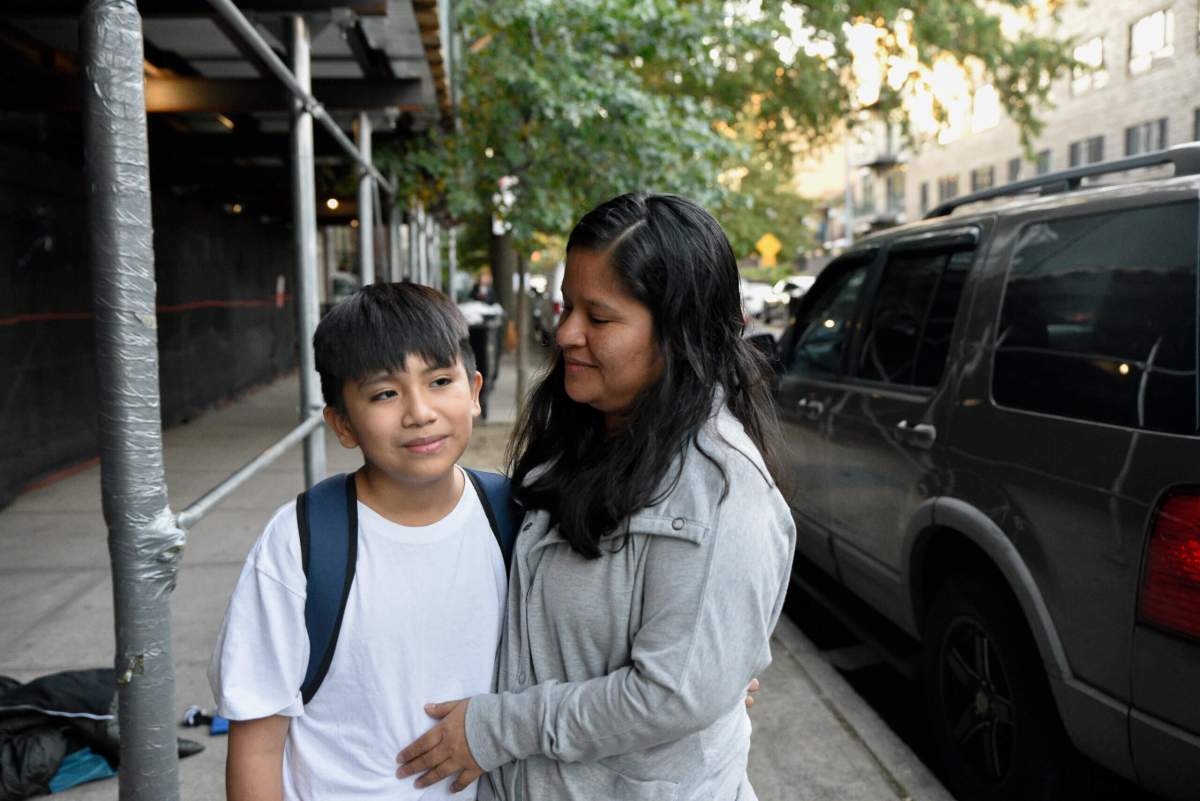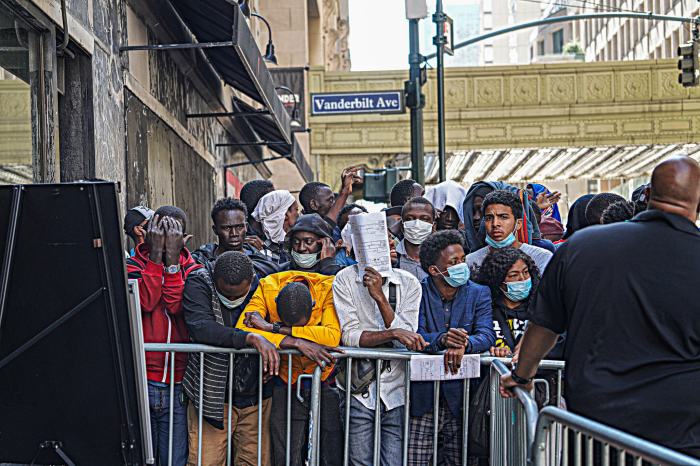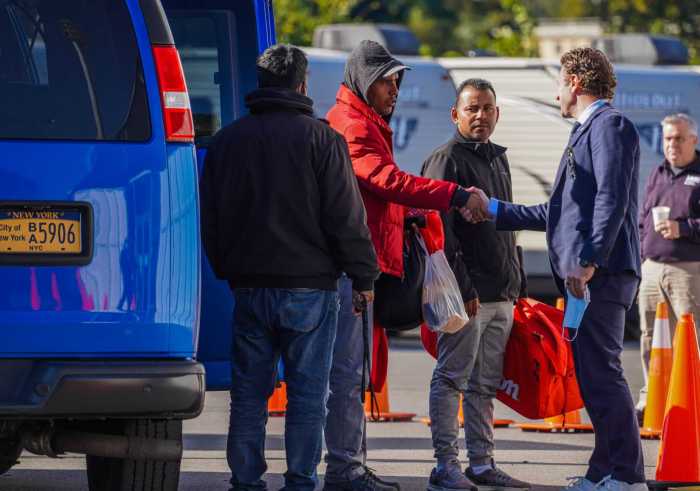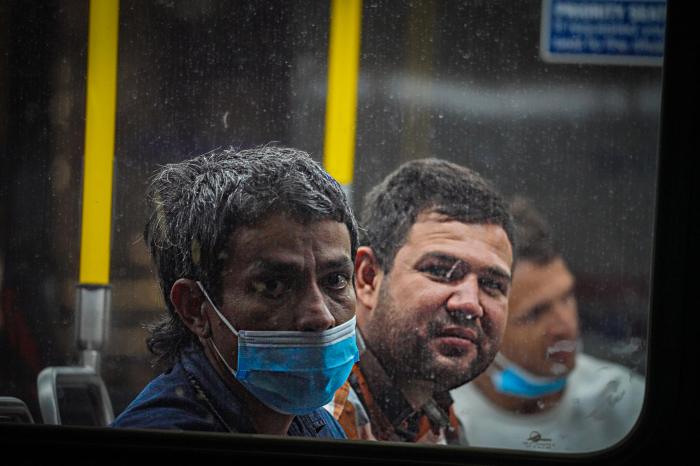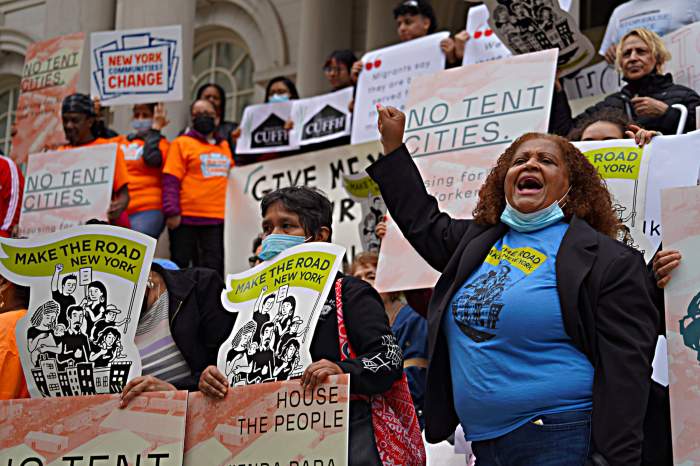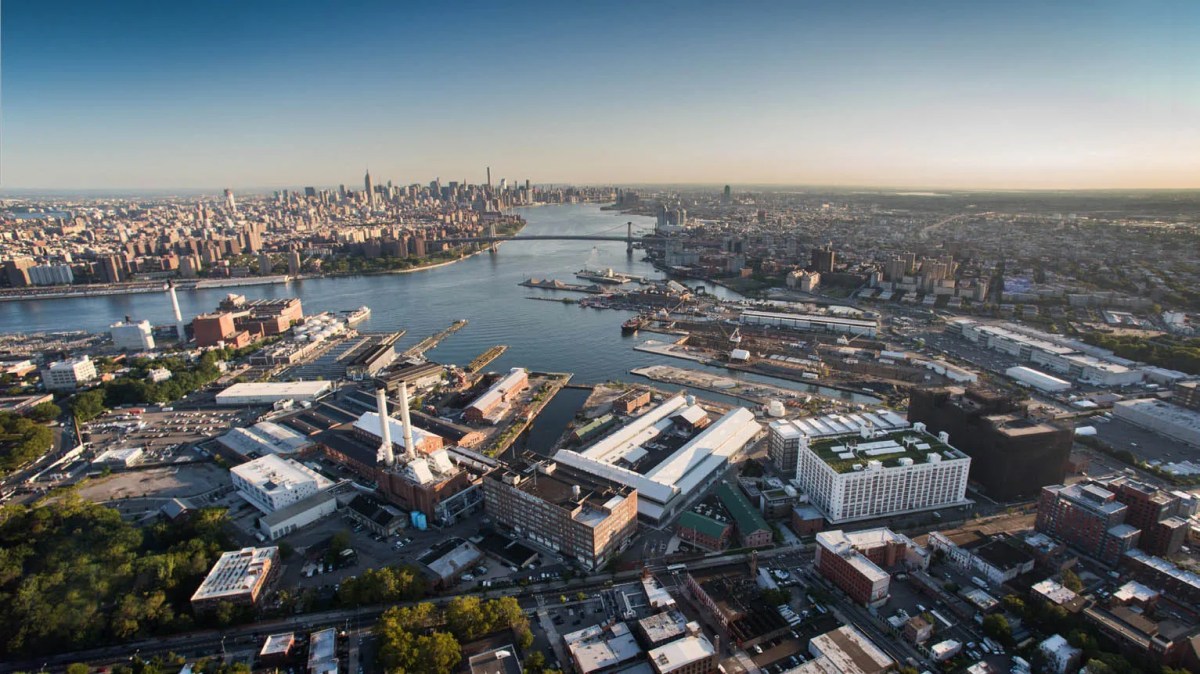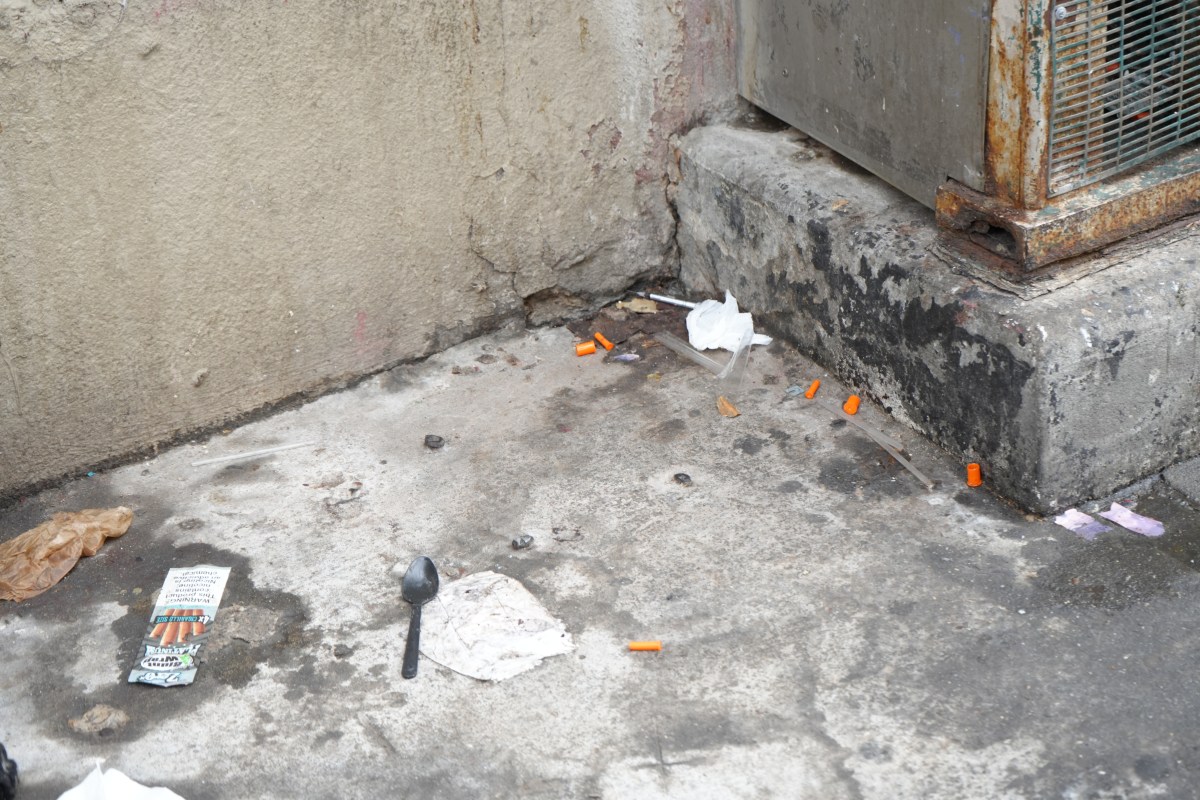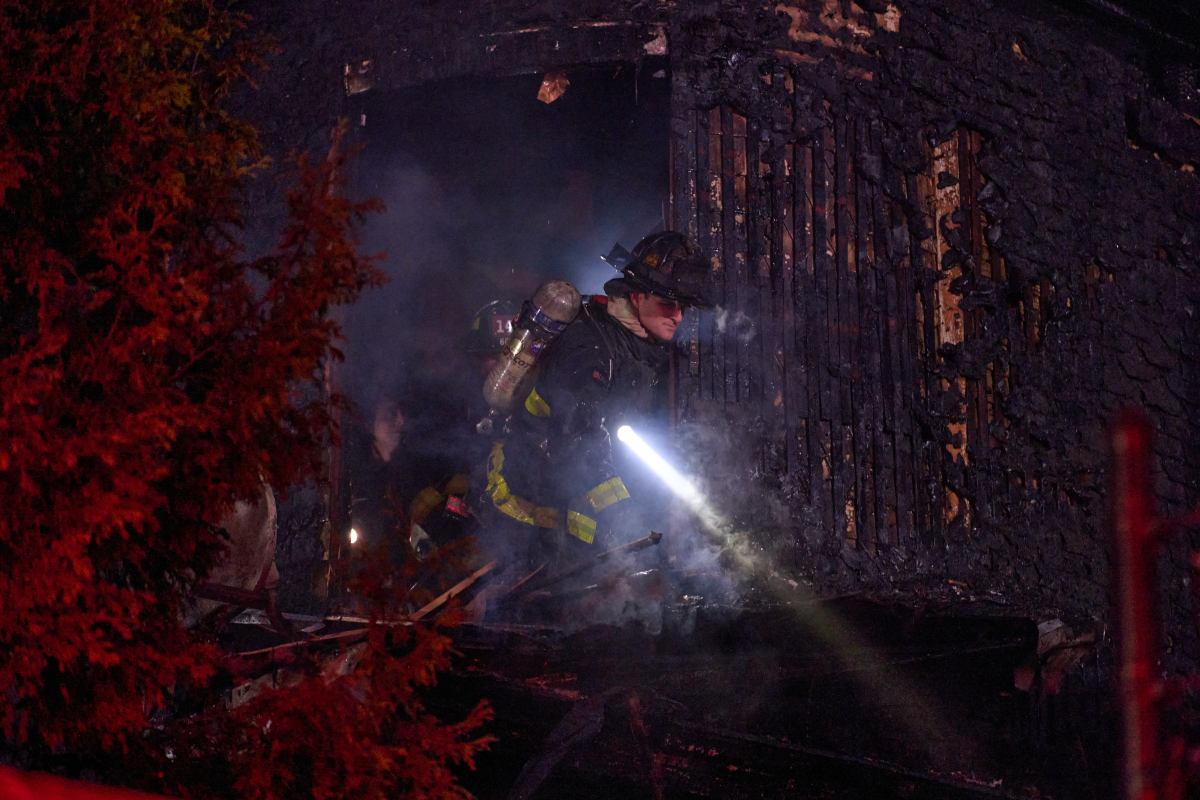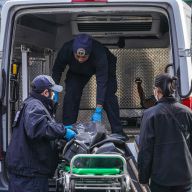Promptly at 5 p.m. every weekday, Marlena Mendoza, a 37-year-old migrant from El Salvador, leaves her room inside a makeshift shelter in Brooklyn and heads to pick up her son from school.
The morning drop offs and evening pick-ups on weekdays are the only certainties she has, not knowing how long she will be able to stay at the Crown Heights shelter as well as in the United States.
However, she does know that at 5:30 p.m. each weekday her 11-year-old son, Justin, who is the only person she knows in the city, will greet her with a smile and tell her what he had for lunch that day.
Meanwhile, her husband, Aguilar, and 18-year-old son, Javier, have been stuck in an immigration detention center in Rio Grande City, Texas since mid-August.
Widespread violence in El Salvador prompted the Mendoza family to take the long trek to the United States – a journey that took over two years. Marlena had also been raped, the final act of violence that pushed them to migrate north by bus and foot.
Their journey also involved the crossing of the Rio Grande River where Mexico borders Texas. Shortly after a perilous 40-minute swim, border patrol agents apprehended them, and the family was torn apart. With half the family detained, Marlena made the difficult decision to get on a bus with Justin to go to a city unknown.
Marlena’s story is not that different from the thousands of other migrants from Central or South America, and she counts her blessing that she has made it alive. She is also not the only one to see her family split apart at the hands of border patrol agents.
Today she’s one of many living in New York, unsure of her future, in terms of finding work, housing and reuniting her family.
Taking the risk
Marlena said many immigrants like her take the risk of coming to the U.S. despite not knowing what will unfold.
“Sometimes [they immigrate] due to hunger, sometimes it’s violence, sometimes it’s extortion,” Marlena said. “It’s not because you want to, but rather the circumstances that make you emigrate.”
She said that she wants people to understand why people come here, especially with kids. “God help me make people understand…what people have gone through to make that decision.”
Since stepping foot in New York on Aug. 19, Marlena has had to navigate everything from riding a train for the first time to searching for an immigration lawyer, all without any English or support. But in the moments where she feels helpless, and city resources fall short, mutual aid groups have connected her with resources.
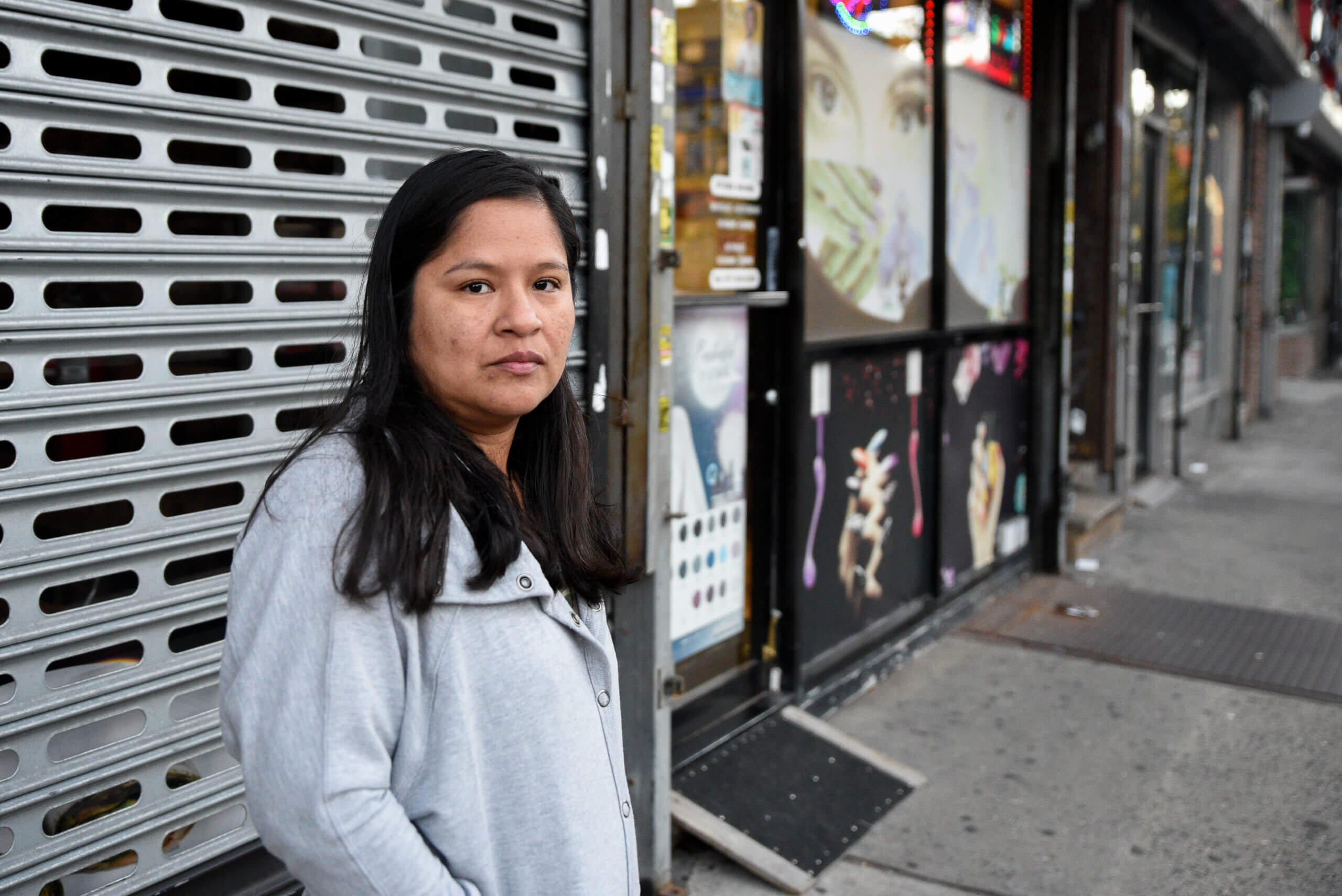
The perilous journey
When Marlena decided to leave El Salvador in June 2021, the country had one of the highest homicide rates in the world and a high rate of gender-based violent crimes, including rape. She and her family decided to leave Sonsonate, the second largest city in El Salvador, in search of a safer life.
She doesn’t remember much of the journey from El Salvador to Mexico, saying that she was in a “a poor mental state” at the time. All she recalls is a multi-day bus ride with Aguilar and her children by her side. Moving from country to country, they searched for peace and work.
Their first major stop was in Tapachula, Mexico, just across the border from Guatemala, where they lived for a year. There she received psychological treatment for depression. Her oldest son also experienced mental health issues at the time.
After a year, they then arrived in Monterrey, Mexico, a city 100 miles south of the U.S border that attracts migrants looking to cross the border. But the family didn’t feel much safer in Monterrey than El Salvador. In her first few days there, she witnessed a child being taken and grew concerned about human trafficking.
“I couldn’t leave the house because of the fear,” she said, noting that it reminded her of El Salvador. She recalled many long days of anxiously staying inside.
The family then decided to move once again.
In August, they crossed the southern border on foot. It took them about seven hours, and also involved a daunting 40-minute swim across the Rio Grande, known for its strong currents.
“We looked to see where the water was lowest, but in the end [it was deep] we couldn’t walk. We had to swim,” said Marlena about crossing the river, which locals estimate kills dozens each month who attempt to cross it.
Without a guide, they arrived in Texas. But the family was spotted by authorities and taken to a detention facility.
She and her son Justin were released after two days, while her husband and Javier remain in custody. She believes that Javier is being held– unlike Justin– because he had turned 18 just a month prior to their crossing.
After an emotional separation, Marlena and Justin got on a free bus headed to New York. Approximately 26 hours later — not including the day stop in Philadelphia — they were dropped off outside of the infamous Roosevelt Hotel for a night, before being transferred to a family shelter.
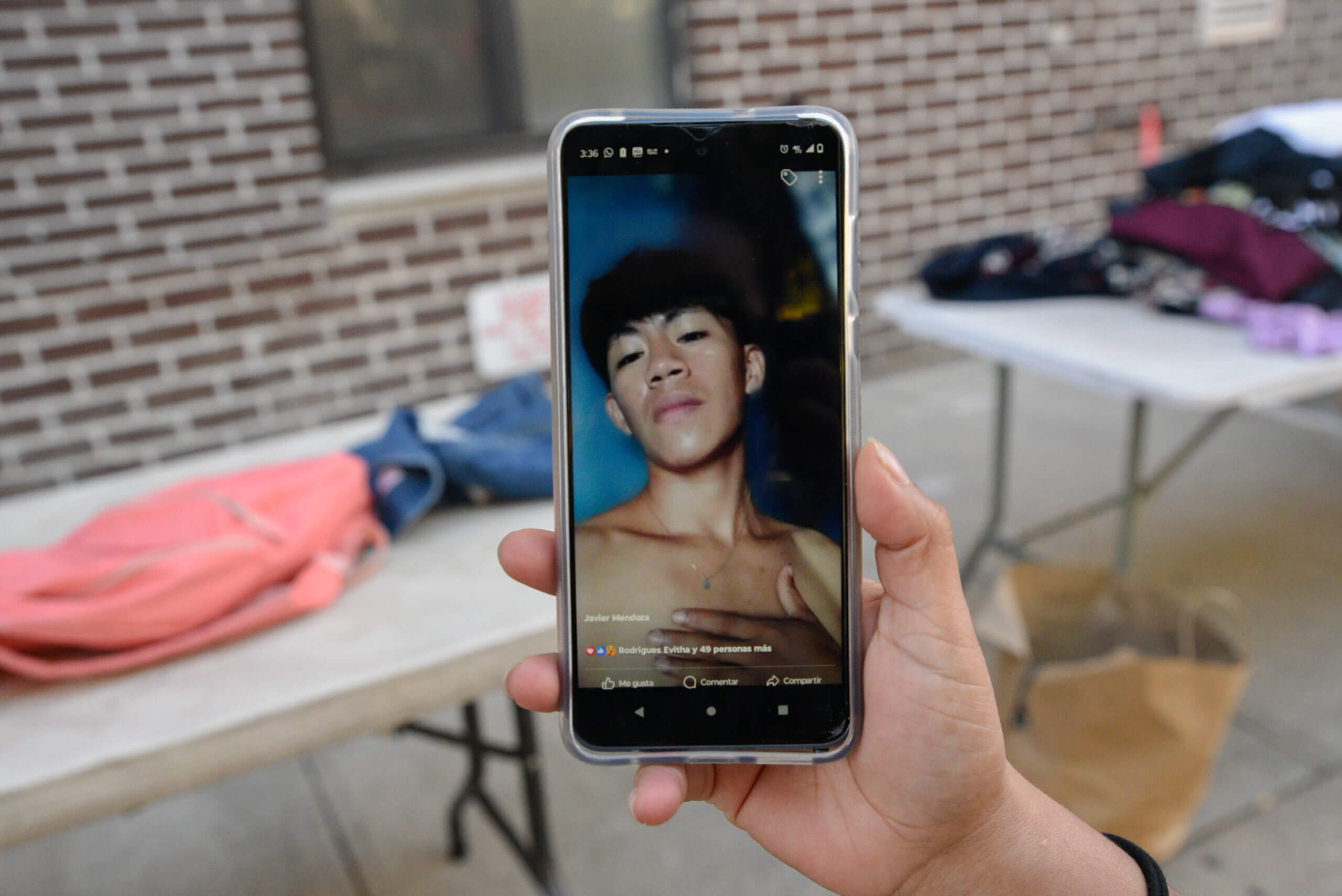
A forbidden zone
Marlena and dozens of other immigrants like her now call a former Best Western Plus hotel on Atlantic Avenue, near the Barclays Center, home. One sign indicating its bygone days was removed and the remnants of another remain barely visible.
The public is prohibited from going in, with only the immigrants and security guards allowed entry. Posted signs throughout remind residents that taking photos is not allowed. The security cameras throughout make Marlena feel uneasy – but safe – at the same time.
Given the security, and a lack of public access, some immigrant advocates argue that the city is trying to hide what is going on in the shelter.
“Nobody knows anything about what’s happening over there. We don’t know how safe this actually is. They’re trying to hide what’s happening inside,” said Levi Jurkowich, an immigrant advocate who has been connecting migrants with non-profit services for the past year.
Marlena is one of the few single mothers living at the shelter that has been designated for families. Children, she says, are not allowed to be left in the hotel unattended, so as a newly solo parent she makes sure Justin is always with her.
She said that she has not been told how long she is permitted to stay at the shelter– only that her stay is temporary. She also hasn’t met with a case worker, or social worker, of any kind to guide her.
Mayor Eric Adams is trying to limit shelter stays for immigrants. Single men must renew their stays every 30 days, and families after 60 days.
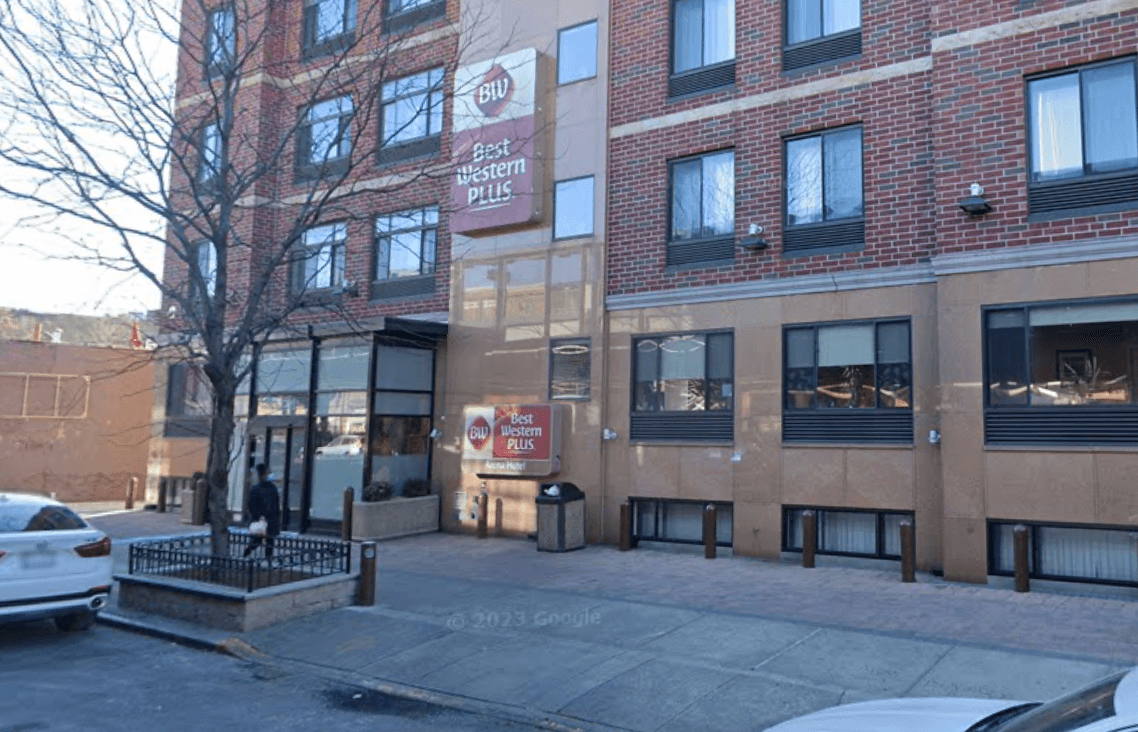
Random room searches
Marlena says that the residents are subject to weekly room searches. With food banned inside the rooms, she says it is treated like contraband.
“People will try to save food for their next meal, then suddenly someone is coming to your room to take away the things you have,” she said, noting that the searches are usually carried out by two guards and are done at random times.
In the past she said she has cried and pleaded to hold on to the non-perishable snacks she either bought herself or received for free — but the guards never budge. She said she has seen mothers, with children much younger than hers, have the food they have saved confiscated.
It is especially concerning for Marlena, who said that Justin has lost weight since arriving in the country. She attributes it to the food being of low nutritional value, and different from what he ate at home.
“When you have a mom complaining that her child is losing weight because the child doesn’t like the food. What do you do?” Jurkowitch said, noting it’s not an isolated case.
Two weeks ago, Marlena received a letter under her door warning her that she will be evicted if they find food in her room again. She said that she has given up on trying to save food for Justin so she does not jeopardize their housing.
She said many parents at the shelter try to break the prohibition on food because they worry about their children going hungry. One shelter resident, she said, who attempted to make rice, had their hot plate confiscated.
The shelter provides breakfast and lunch, which generally consists of bread and apples. Dinner is a frozen tray meal that is heated up by a microwave.
The standard mini fridges were removed from the rooms before the migrants moved in.
Critics argue that the shelter, like many across the city, has prison-like qualities.
“It’s weird. You feel like you’re in jail,” said Antonio Vaca, whose mutual aid group, Fenix Community Fridge in Ridgewood, has been distributing hot food and pantry staples to reduce food insecurity since the pandemic began.
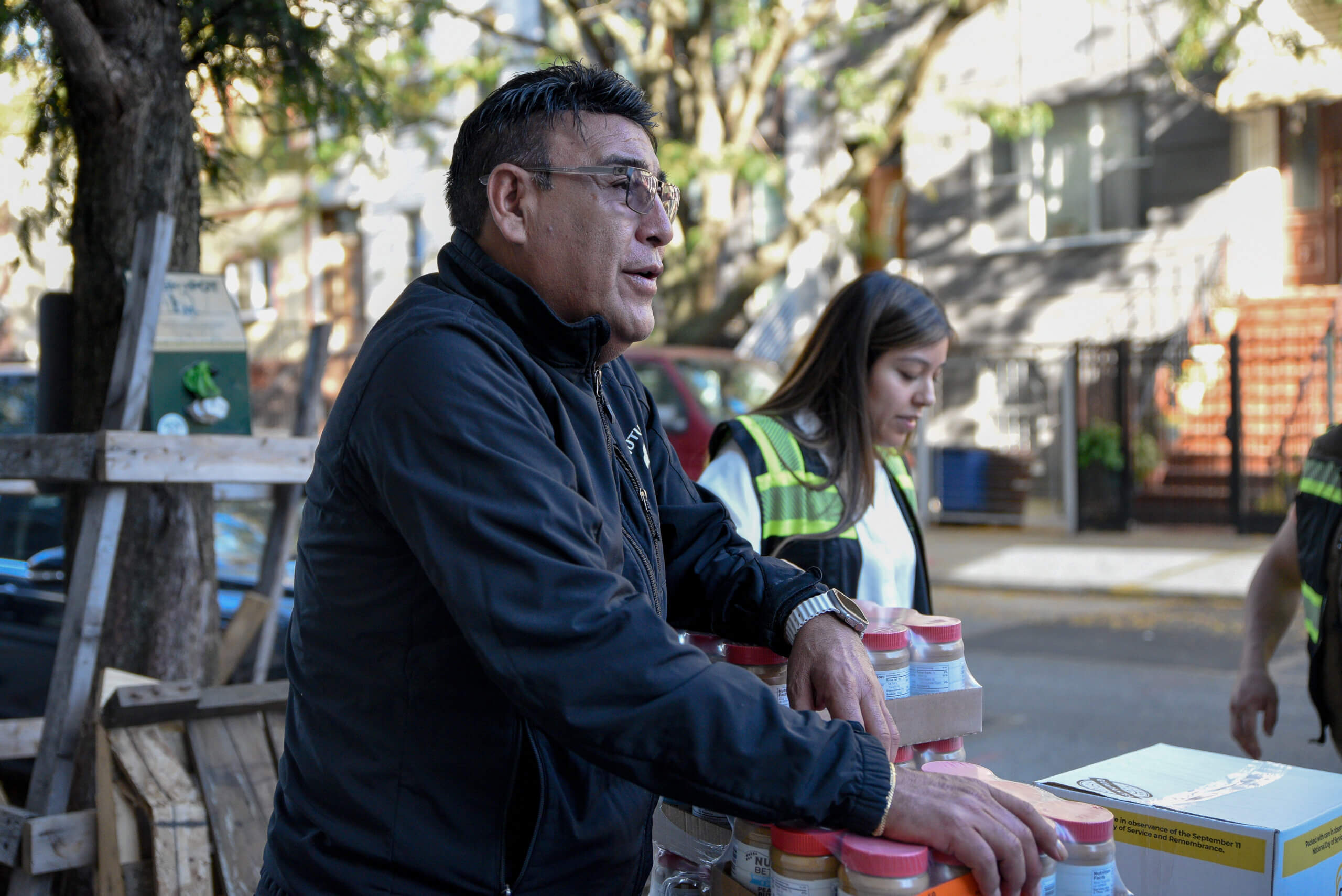
Schools make the journey worthwhile
Justin arrived in the city just in time for the first day of the school year.
Every morning he puts on his uniform – chino pants, a white t-shirt and his navy backpack – to attend 6th grade at P.S. 138 on Prospect Place. The school is just a few blocks away from the shelter.
In his grade, there is only one other student like him who is an asylum seeker, although the school has 30 others.
Marlena said she is thankful that he can attend school.
“My children have always been my priority. Thank god my son is already studying again,” she said as she waited for his dismissal.
Every day he learns a little bit of English, which he shares with Marlena during their walk home. The after-school program he attends helps with homework and reduces the time he has to spend at the shelter.
The American dream
Marlena said she is both excited and anxious about their future.
She spends her days at the shelter worrying about finding a job and where they will live. However, she is thrilled about the opportunities Justin will have.
He tells her that he envisions buying her a house and driving her around in a car so she does not have to walk as much anymore. His dream is to study in school and excel so that he can ease their struggles.
Nevertheless, they both miss Aguilar and Javier. She’s only been able to speak to them for ten minutes on Sundays when they can call. But Marlena hasn’t been able to get any information on their cases, or possible release.
“I want them to be by my side. That is my biggest dream. Having one son there and another here, I’m incomplete,” said Marlena, who misses the unity. “This is torture for me.”
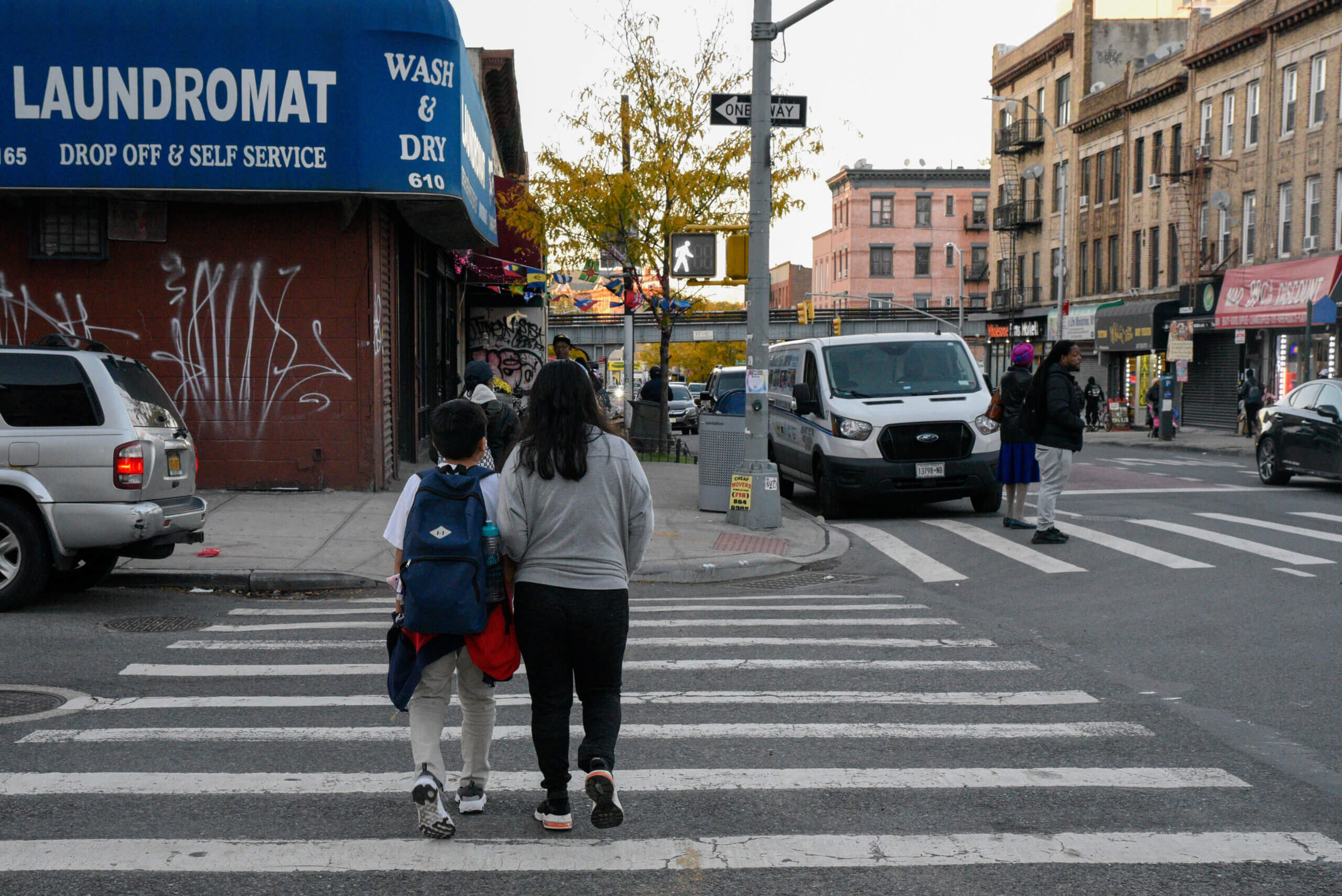
Read more: Brooklyn Murder-Suicide Claims Three Lives Including Teen Dog



